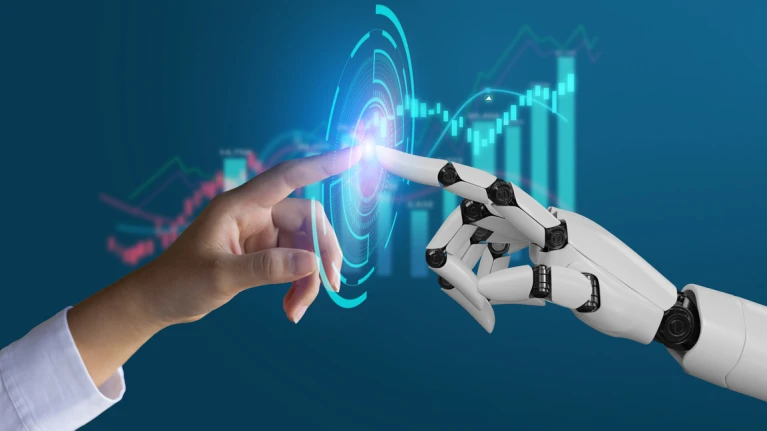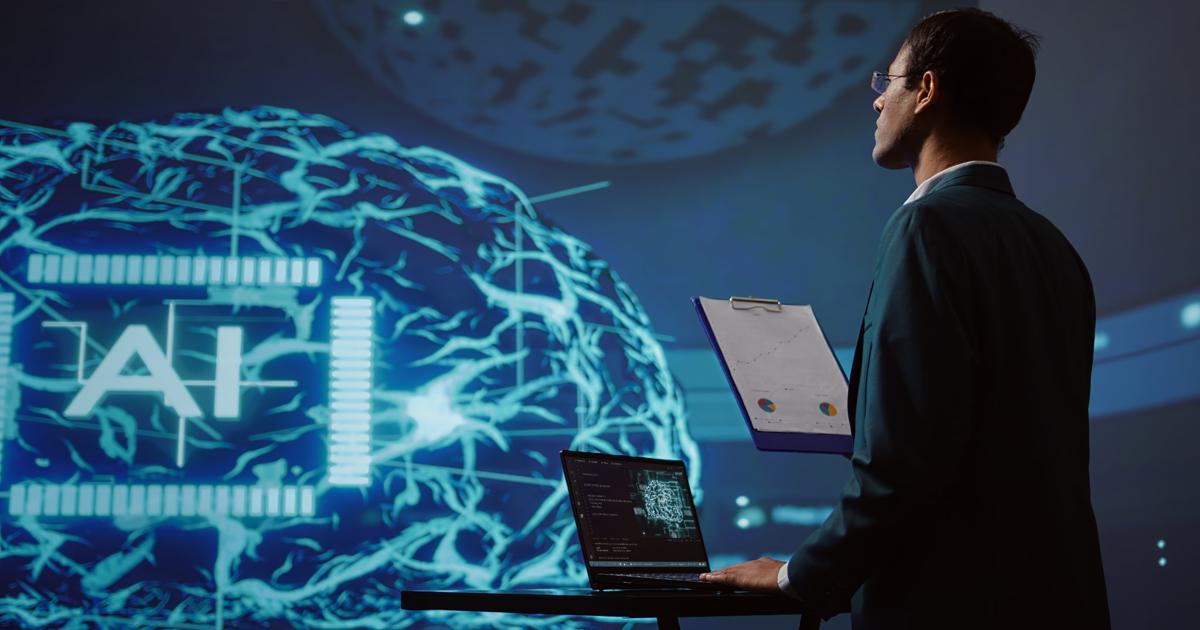Friday, May 26th 2023
The Psychology of AI in the Workplace

The integration of Artificial Intelligence (AI) in the workplace has brought about significant changes in how work is performed. This blog explores the psychology behind AI in the workplace, delving into how it can help workers, how it can replace them, and the emotional and psychological impacts it has on employees. Furthermore, it discusses recommendations from Industrial-Organizational (IO) psychologists that would help HR teams to support employees during the challenging adoption of this new technology.
How AI Will Help Workers:
AI holds great potential to enhance the working experience for employees. By automating routine and repetitive tasks, AI frees up time for workers to focus on more complex and meaningful responsibilities. This shift allows employees to engage in tasks that require creativity, critical thinking, and problem-solving skills, leading to increased job satisfaction and a sense of accomplishment.
Moreover, AI-driven tools can analyze vast amounts of data quickly, providing valuable insights and aiding decision-making processes. This collaboration between humans and AI can amplify workers' capabilities, enabling them to make more informed decisions and achieve higher levels of productivity. AI can also personalize learning experiences, offering tailored training programs that allow employees to upskill and remain competitive in a rapidly evolving work environment.
How AI Will Replace Workers:
While AI offers many benefits, it also poses a challenge to certain job roles. As AI algorithms become increasingly sophisticated, they can perform tasks that were previously exclusive to humans. Jobs that involve routine, repetitive, and easily automated tasks are particularly at risk of being replaced by AI. This technological advancement can lead to job displacement and uncertainty among workers in industries where automation is prevalent.
Furthermore, AI's ability to process and analyze large amounts of data can enable the development of intelligent systems that can make complex decisions without human intervention. In domains such as customer service, data analysis, and manufacturing, AI has the potential to outperform humans, raising concerns about the long-term viability of these professions.
The Emotional and Psychological Impacts:
The introduction of AI technology in the workplace can trigger various emotional and psychological impacts on employees. The fear of being replaced by machines and the uncertainty surrounding job security can lead to anxiety, stress, and decreased job satisfaction. Employees may experience a decline in self-esteem and a sense of devaluation, as they perceive their skills and contributions to be less significant.
Moreover, the integration of AI can disrupt established workplace dynamics and company culture, creating a sense of alienation and disconnection. Employees may resist the adoption of AI due to fear of change or concerns about skill obsolescence. This resistance can lead to tension and reduced engagement among employees, impacting their emotional well-being and overall productivity.
Recommendations From IO Psychologists:
IO psychologists play a vital role in supporting employees during the adoption of AI technology. To assist employees during this transition, HR teams can implement the following recommendations:
Prioritize the employee experience: Organizations should ensure transparent and timely communication about AI integration, addressing employees' concerns and emphasizing the potential benefits. This communication should focus on the ways AI can augment employees' work rather than replace them, fostering trust and alleviating fears.
Foster a positive company culture: HR teams should promote a culture that embraces change and encourages continuous learning. Establishing a growth mindset and offering opportunities for employees to upskill and acquire new competencies can help them adapt to the evolving work landscape and feel valued and supported.
Enhance employee engagement: HR teams should create channels for open dialogue and feedback, allowing employees to express their concerns, ask questions, and contribute ideas regarding the integration of AI. This involvement empowers employees and increases their sense of control and ownership, leading to improved psychological well-being and acceptance of the new technology.
AI is Here, Let’s Help Employees Embrace It!
The psychology of AI in the workplace is a complex and evolving topic. AI brings such tremendous benefits to the workplace that the idea of holding off on it doesn't seem realistic. Instead, HR teams should prioritize the employee experience, foster a positive workplace company culture and enhance employee engagement during the transition to a more AI powered company. The best way to do this is with a thorough understanding of the employee experience based on real-time and continuous people analytics. Look into software solutions like Scanta’s TruPulse so that you can always stay on top of the voice of the employee and understand where you may need to focus your HR programs to maximize the employee experience during these times of significant change.
Recent blog posts


